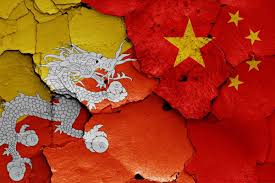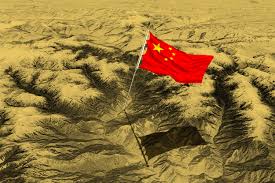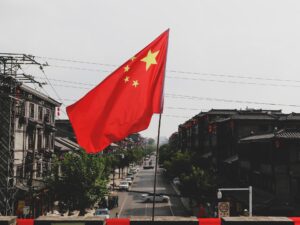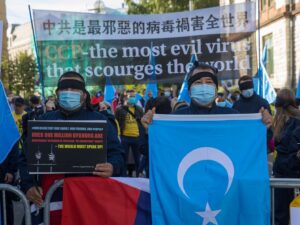<China is carrying out large-scale construction work in the Giacalang valley on the Bhutan border. Bhutan is forced to negotiate from an overwhelmingly weak position.
Satellite images have revealed that China, which is engaged in a dispute over territory and territorial waters with a number of neighboring countries, is rapidly constructing settlements in the southwestern border region, which is supposed to be a “disputed territory. This is a large-scale construction project that China is undertaking on the Bhutan border. Speculation is rife over the background of the project and the intentions of the Bhutanese side.
<China is carrying out a large-scale construction project in the Giacalang valley on the Bhutan border. Bhutan is forced to negotiate from an overwhelmingly weak position.
China, which is engaged in territorial and territorial disputes with a number of neighboring countries, has been revealed by satellite images to be rapidly constructing settlements in the southwestern border region, in what is supposed to be “disputed territory”. This is a large-scale construction project that China is undertaking on the Bhutan border. Speculation is rife over the background of the project and the intentions of the Bhutanese side.
Satellite images taken by Maxar Technologies, a private U.S. satellite imaging company, on December 7 clearly showed large-scale construction work underway in Bhutan’s remote Jakarang valley. China is pursuing settlements in disputed areas in two locations in northern Bhutan, the Giacalang Valley being one of them.
John Pollock, a South Asia expert at the Royal Institute of International Affairs (Chatham House), speculates that “Bhutan may be considering ceding land to China through a border deal” after seeing several projects in the satellite images. Pollock shared the satellite images on X (formerly Twitter) on December 11.
An analysis by Indian news channel NDTV identified at least 129 buildings in one settlement in the Jakarang valley and 62 in another. Both appear to be residential areas, suggesting that there are a significant number of Chinese residents in the area and that they may be living there permanently.
The Chinese were also building in the Menchuma Valley, east of the Jacalangu Valley. Pollock believes that Bhutan may be trying to cede land to China here as well.
They have been building up a “ready-made case” for land claims.
Bhutanese decision makers appear to be focused on a deal on the northern border. Bhutan is surrounded by India on three sides to the east, southwest, and only the remaining northern side borders China. This northern part of the country is an area of little importance to India, Bhutan’s “protector”.
China has been pursuing a settlement program there for many years, thereby building up a “fait accompli” of land ownership. Bhutan is no longer forced to come to the negotiating table.
Damian Simon, an expert in open source analysis, told this publication that China is building an “ecosystem” of villages in northern Bhutan. There are settlements created in the upper reaches of the Giacalang valley as the first settlements.
The scale of this development shows that these villages are not just isolated settlements, but an integral part of an overarching ecosystem that supports China’s territorial ambitions. The Bhutanese landscape will become even more Chinese,” Simon explains.
Tibetan expert Claude Arpi expressed concern about Bhutan’s ability to stop Chinese encroachment. Arpi told NDTV on November 11 that “the Royal Bhutanese Army cannot push back [the Chinese People’s Liberation Army or] border defense forces, nor can it stop the construction of new settlements.
This situation has forced Bhutan to struggle in its current border dispute with China, a power far greater than itself.
Is the only way to stop the encroachment a deal to cede territory?
In response to this situation, India is keeping a close eye on the developments between Bhutan and China in order to analyze what strategic implications the border dispute between its own country and China may have. This is because any land deal between China and Bhutan could have a direct impact on India.
Bhutan has long followed a policy of non-aligned neutrality in its foreign policy and has maintained a policy of having no formal diplomatic relations with the members of the UN Security Council. As such, India has traditionally served as a conduit for Bhutan’s foreign affairs, including relations with the United States. However, the Chinese government is now pushing Bhutan to establish direct diplomatic relations.
Since taking office, Bhutanese Prime Minister Lhoti Tsering has actively promoted talks with China. Tsering’s interest in border negotiations suggests that there is little choice but to strike a deal to stop Chinese encroachment.
According to Simon, the ongoing negotiations could significantly affect the situation in Bhutan’s northern valley. If Bhutan cedes the Jakarlang and Menchuma valleys to China, Simon notes, Bhutan’s sovereignty and territorial integrity could be severely compromised.
Robert Barnett, a professor at the School of Oriental and African Studies (SOAS) at the University of London and a specialist in Tibetan history, told NDTV that the region has significant religious and cultural significance for Bhutan.
He said, “For the Bhutanese people, the Jakarlangu Valley is adjacent to Beyul Khenpajong, an area of great cultural and religious significance. In other words, China has recently been pushing claims of dubious basis about culturally significant areas in a much less powerful neighbor, taking advantage of the fact that that neighbor has few options for a response. “Newsweek












